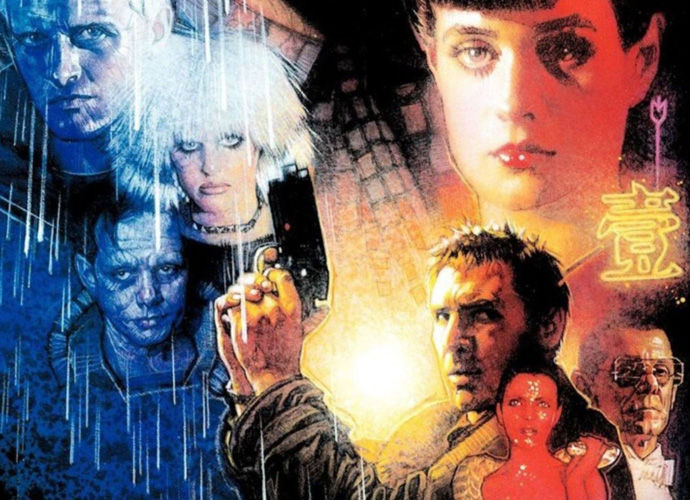The Changing Face of Science Fiction From ‘Star Trek’ To ‘Intersteller’
Science fiction is rebounding in popular culture. Like all genres, it has an ebb and flow, though science fiction seems to vacillate more than most. Science fiction shares threads with horror and fantasy not only because of their heightened realism but because they’re always perched on the event horizon of schlock. Take yourself too seriously and it comes off tedious; take it too easy and you’ve got an accidental comedy. So many of these three genres end up on worst lists rather than best lists. Science fiction apparently is easy to make, but difficult to make correctly.
The rise of superhero films has made science fiction a more adaptable brand again, and unfortunately, just like superhero films, more isn’t always better. While I didn’t care for it, Interstellar is a step in the right direction for the genre. It boasts a hard basis in actual science and is careful when reaching beyond our limited insight; it does even comment on the human condition, the way great science fiction should, though, unfortunately, it doesn’t quite bring home the bacon in that respect. Science fiction has always had this desire to reflect our world back on us thematically and resonantly. Works like Gattaca, Videodrome, Antiviral, Never Let Me Go (the novel), Blade Runner, Alien, and Strange Days despite some minor qualms are smart and insightful, and sometimes edging against satire. They use their elevated realities to add some unique and prescient commentary while also entertaining its audience.
In that way, Inception ends up being probably the best science fiction movie of the last decade or so because its patches of plot and character add to something more than the sum of its parts. While other mainstream sci-fi like Avatar, The Purge and Elysium are more interested in CGI and beating us over the head with its themes or thinning philosophies, Inception stands as a kind of focusing point. It adopts and adapts wild ideas and the dangerous depths of the human heart to bring us a story of a family and how far we’re willing to go to get them. Sure, the film is forty minutes too long and talks itself into circles, but the center does manage to hold. Plot, theme and character end up making Inception more than the sum of its parts. Also, it has Marion Cotillard. That’s always a plus.
On the same level is Gravity, which does manage some pretty reasonable science will also telling a story, human story. There are flaws of course, but it balances perfectly and encapsulates exactly what good sci-fi is; the wonder of spectacle and the measure of human spirit, endeavor, creation and effect.
If you want to source what has molded science fiction the most over the last century (for the better) you’d have a small list. Metropolis, Alphaville, The Day the Earth Stood Still (the original!), Planet of the Apes (again, the original!), Blade Runner, Alien, Star Trek: The Original Series, and The Twilight Zone. (You can of course make a case for Star Wars, but that was always closer to fantasy than sci-fi; despite the aliens and the laser beams you still have a magic plot convenience to cover story flaws.) Deeply serious works like Alphaville and Blade Runner allow us an inspired look into a fascinating possible world while also exploring human frailty and failures; Star Trek and The Twilight Zone were very much a result of their era, embracing both camp or darkness on a week to week basis, but keeping themselves firmly entrenched in commenting on the way things are in the (then) present. Together, they all added something to the modern takes on sci-fi: camp, action and thoughtfulness. It can be allegorical or it can kick ass; the genre is that flexible that if done right you can watch one back to back with another and not miss a beat.
I’m not saying that there’s no room for fun in sci-fi. Not everything has to be Blade Runner. There are sci-fi movies that drift into or purposely become schlock or comedy and it’s every bit as valid as an entry in the science fiction oeuvre. Hot Tub Time Machine, Dredd, Galaxy Quest, Back to the Future, Predator, Pacific Rim, Robocop, Jurassic Park, Scott Pilgrim vs. The World are all a damn good time and are welcome additions to science-fiction’s broad catalogue.
But what isn’t and why aren’t they? What’s damaging to the brand?
Strangely enough, modern sci-fi has more going for it than it doesn’t, though the medium is shifting further from film and towards television. In the 90s, Twin Peaks, The X-Files and Stargate SG-1 gave non-Trek sci-fi shows a greater chance to succeed. From that came series like Ron Moore’s Battlestar Galactica, V and Firefly mixed so many disparate qualities to science fiction to (mostly) great success. Unfortunately, due to ratings or perception only BSG made it to its conceived endpoint. Perception is an important thing; likely because it has hampered science fiction for decades. There is a perceived illegitimacy to science-fiction because of its broader storytelling and niche appeals. Often, people will take something as monolithic as Star Trek as an example of science fiction at its most impenetrable or Battlefield Earth at its most worthless.
Numbers don’t lie: the science fiction films from 2000 have received 6 Academy Awards, 20 Saturn Awards, 2 Hugo Awards, 1 Nebula Award and 5 BAFTA awards; since 2000, sci-fi films have also received 17 Golden Raspberry Awards (stats courtesy of Wikipedia). This is indicative of both perception and quality. Critics tend to go harder on science fiction because they require a great suspension of disbelief, and when your story can’t hold us, we’re left with 90 minutes of pure stupidity. Speaking of massive amounts of stupidity, let’s explore two malignant growths on the contemporary science fiction ovum: Prometheus and JJ Abrams’ Star Trek.
There was no doubt that Star Trek needed a rest, and needed a fresh pair of eyes. The Next Generation movies were mostly garbage; same goes for the latter series, Voyager and Enterprise. While CBS owns the rights to a Star Trek television show, Paramount owns the rights to the films. In hiring JJ Abrams, they hired a man who wanted to turn Star Trek into Star Wars. In one way, that does make its own sense. Paramount wanted a fresh take on an old, elastic franchise. Trek was often lacking in its action department (due mostly to Paramount’s refusal to give it a reasonable budget over forty years), and adding some adrenaline would be helpful. Unfortunately, in hiring Roberto Orci, Alex Kurtzman and Damon Lindelof, Star Trek ceased being what it was always intended to be—a timely and thematic exploration of humanity with sprinkles of social commentary and satire—and turned it into something closer to Michael Bay’s Transformers. It dilutes not only the name, but science fiction in general. Its success is undeniable but in the long-term, it makes Star Trek one less sci-fi franchise to take seriously; rather making it one more that is about spectacle and effects. Currently, there is no major difference between Star Trek and Battleship. There, I said it. Hopefully, those who got into Star Trek because of the Abrams films will further seek out the franchise and come to appreciate it for what it was—and hopefully help resurrect the series for television, where it belongs, and hopefully under the eye of someone who knows how to tell a story and not just fire phasers and make dick jokes.
Again with Damon Lindelof, we come to Prometheus. Film students will be dissecting this film for a years to come—not in the way they do Citizen Kane or The Third Man—but of how something can go so wrong and nobody notice it until it was too late. Prometheus began on an exciting note: it was Ridley Scott’s triumphant return to the Alien franchise. After sequels that defined “diminished returns” for an entire generation, this was exciting news…until we heard prequel. The word that sunk Star Trek and Star Wars. The word that prompts people to drink heavily before entering the theater.
The news was made worse by the fact that Damon Lindelof was writing the final draft of the screenplay. For years he was one of the most beloved showrunners of the last twenty years. Then the final season of Lost happened and people wanted him executed. Alien was a smart, scary and bizarre science fiction film. It never really needed its apocryphal sequels nor did it need an expository prequel. In order to avoid covering the same ground, the idea was to broaden the Alien mythology. Released along with a trailer was a viral video starring Guy Pearce that was incredibly interesting. Well-acted, well written. Exciting. Except the finished product, Prometheus itself, was a rambling unfinished mess of story notes that all seemed to come from different movies with only tangential ties to its source material, and a definite lack of common sense.
https://www.youtube.com/watch?v=5BBa_GHtNB0
The film was both damaging to the franchise and to sci-fi in general. Fans could tell non-fans what a great time it was to catch up—this was a new entry point and all; it’s science fiction and horror done right—and then we got there and it’s just a mess of nothingness. There was nothing extra; there was no new twist on an old formula to really appeal to a wider base, and nothing for the established fans to glom onto either. As a standalone film, it isn’t all that great; as a prequel to science fiction royalty, it’s a tragedy.
Since science fiction will always be viewed with a certain level of distrust in terms of integrity and capability, the most reasonable idea would be to produce with a more careful eye. There is no reason why you couldn’t have Back to the Future, Videodrome, Total Recall, Wrath of Khan or The Fifth Element all standing next to each other. It’s a matter, like anything else in entertainment, of quality. Even if it’s a comedy or an actioner, look to see if it holds up to scrutiny. See if it manages to tell its story well enough before you put it in front of the camera. Just because the movie is financially successful doesn’t mean you’ve pleased your audience. They’ll turn on you if you take them for granted. Just like with Star Trek.
RELATED ARTICLES
Get the most-revealing celebrity conversations with the uInterview podcast!






Leave a comment